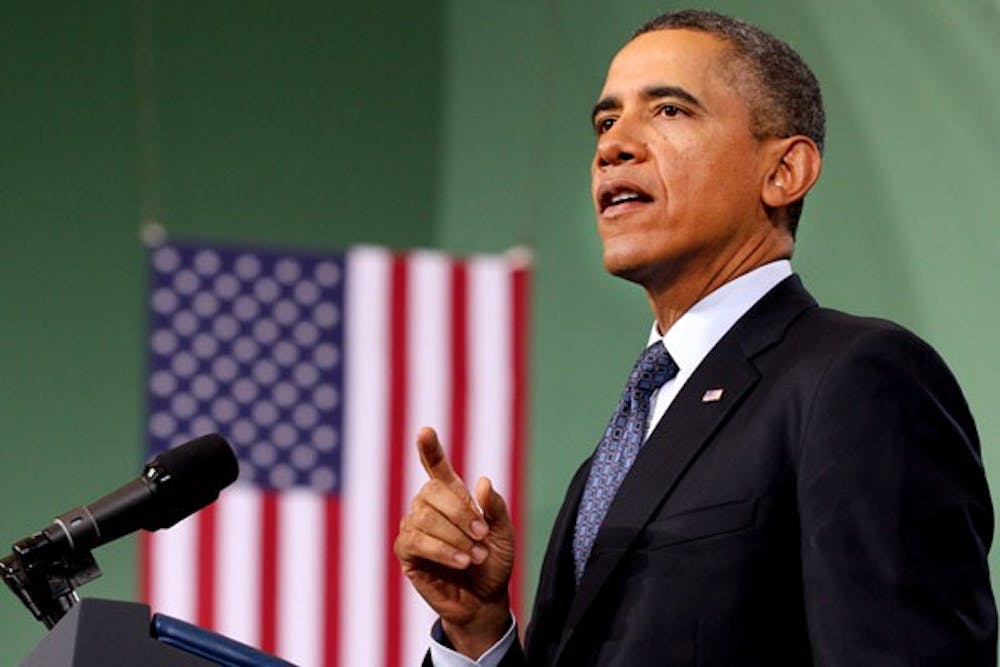Sequester cuts to take effect Friday if compromise is not found

The federal government is slated to cut $85 billion from defense and domestic spending this year unless congressional Republicans and President Barack Obama can reach a deal.
Political science professor Sterling Johnson believes largely because of the defense cuts, the sequestration cuts are not politically viable, especially for the GOP.“The consequences will be too great upon Republicans; they are using this as a threat of brinkmanship,” he said. “They will not touch defense; they have far too many constituents and jobs attached to the budget.”
Beginning Friday, the federal government will initiate the process of eliminating $1.2 trillion in spending to largely domestic and defense programs over a period of 10 years, a consequence of the automatic sequestration cuts pushed off following the fiscal cliff negotiations.
Presently, the defense budget faces the largest cut as a result of the sequester. Defense spending is set to decrease by approximately 13 percent over the next two years.
However, following 2015, defense spending will once again increase and by the end of the 10-year sequester will have averaged (after adjusting for inflation) roughly a $100 billion spending increase each year.
With the exception of the defense budget, the vast majority of these cuts are not spending reductions in the sense of a decreased federal baseline; rather, they consist of reductions in the increase of future spending.
According to a recent, non-partisan Congressional Budget Office report, the federal government will be spending $2.39 trillion more annually and will have accumulated roughly an additional $7 trillion in debt by 2023.
David Jesuit, director of the School of Public Service and Global Citizenship, said decreases to spending are best avoided in times of recession and should not occur in such an indiscriminate fashion. He said the uncertainty coming out of Washington can hurt the economy, regardless of whether or not the cuts are avoided.
“I don’t think sequestration is really in anyone’s best interest,” Jesuit said. “I think some deal is better than across-the-slate cuts; I anticipate there will be more cuts and more revenue as a result of a compromise."
A recent survey conducted by the National Association for Business Economics found a majority of economists see the sequestration to be inevitable.
Unlike the fiscal cliff scenario, the survey found the majority believes the effects of sequestration, in addition to budget uncertainty, could reduce economic growth to less than half of a percent this year.
Most economists in the survey anticipated that the economy will swallow some brief pain for this upcoming year, but thanks largely to a recovering housing market, it could see growth accelerate in upcoming years, including a 3-percent increase in real GDP by 2014.
Speaker of the House John Boehner, R-Ohio, blasted Senate Democrats over the sequester.
“We should not have to move a third bill before the Senate gets off their ass and begins to do something,” he said Tuesday. “It’s time for the Senate to act.”
Obama said the sequester will "weaken military readiness" and criticized Republicans for refusing to negotiate on new revenue.
Gov. Rick Snyder said the sequester cuts and uncertainty coming from the U.S. capital risk future economic growth in Michigan and nationwide.
"This whole issue of getting to the sequester is a failure," Snyder told CSPAN. "I mean, that was the point of putting it in place to begin with. It wasn't supposed to happen. That just illustrates the mess in Washington compared to the states"



